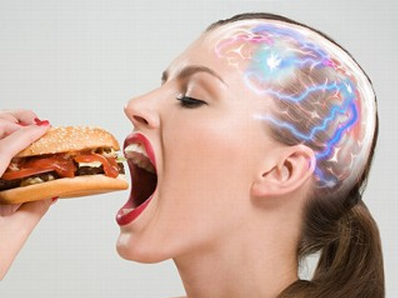Could You Be Suffering from Food Addiction?
When you hear the word addiction, it isn’t likely that you think of food. Instead, your mind probably flashes images of drugs and drug addicts or alcohol and alcoholics from your own memories. If you have friends and relatives who smoke cigarettes, you might also think of a tobacco addiction. So, how can food become an addiction when, unlike the others, our body actually needs this sustenance to survive?
What is a Food Addiction?
The term ‘food addiction’ refers to a scientifically proven disease. When a person experiences partial or complete loss of control over the ability to stop eating certain foods, either on their own or as requested by a physician, there is a dependency. This dependency is caused by the presence of a cluster of chemical dependencies on specific foods.
Food Addiction Causes
 When people consume highly palatable foods, most specifically those high in sugar, excess fat, and salt, their brains can develop a physical craving for these foods. If not careful, progressively consuming these types of food can distort their cognitive abilities which can then lead to unfavorable consequences they can no longer control due to the food addiction.
When people consume highly palatable foods, most specifically those high in sugar, excess fat, and salt, their brains can develop a physical craving for these foods. If not careful, progressively consuming these types of food can distort their cognitive abilities which can then lead to unfavorable consequences they can no longer control due to the food addiction.
Looking Deeper at Food Dependency
Like any other form of dependency, food addiction can stem from an individual’s social, biological or psychological issues. Common social factors among food addicts include family problems, peer pressure, social awkwardness or isolation, abuse, lack of support, decreased performance or failure at work or school, avoidance of social gatherings and family functions, and traumatic life events.
Biological issues that commonly influence food addiction include the following: hormone imbalances, brain abnormalities, relatives with food addictions and/or disorders, and side effects from brain-altering medications. Those who suffer with frequent suicide ideation or panic attacks may also seek temporary comfort in a food addiction.
Looking deeper, food addictions are often the result of psychological issues such as emotional or sexual abuse, inability to cope with stressful or traumatic life events, chronic self-loathing or low self-esteem, emotional detachment or numbness, or an inability to recover from grief or loss. More often than not, these individuals will turn to food as a coping mechanism in an effort to relieve their pain and buried emotions resulting from these issues.
Co-Morbid Disorders
Many times, someone who struggles with a food addiction will also have other co-morbid disorders, such as substance abuse and eating disorders. Food addicts may also suffer from co-morbid health conditions due to their eating habits. Here are some of the most common physical issues faced by those with food addictions:
- Heart Disease
- Stroke
- Hypertension
- Malnutrition
- Obesity and/or Digestive Problems
- Osteoporosis
- Kidney or Liver Disease
- Insomnia and/or other Sleep Disorders
- Lethargy
- Arthritis
- Chronic Pain, Fatigue and Headaches
- Decreased Sex Drive
While not one of the more common dependencies thought of today, food addiction points to a complex mental health issue that should be treated immediately to avoid serious complications. With guidance, support and treatment, it is possible to escape the vicious cycle of dependency and fully recover from a food addiction.
